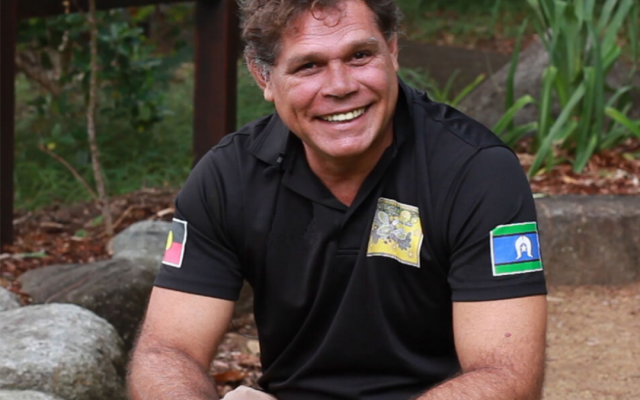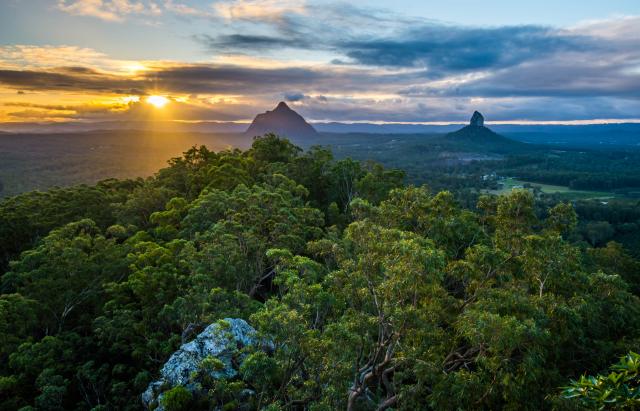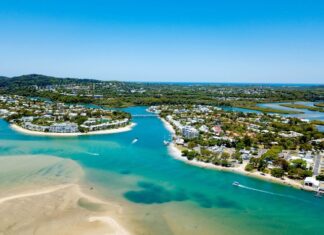It was a long fought victory for traditional owners whose native title rights over more than 365,000 hectares of land in southeast Queensland have been recognised in the Federal Court.
The Kabi Kabi Traditional Owners’ non-exclusive rights to an area of 10,280 square kilometres along the Sunshine Coast were recognised in Brisbane on Monday.
The recognition spans Gympie, Noosa, the Glasshouse Mountains, Maroochydore, Caloundra, Bribie Island and Mudjimba Island.
Kabi Kabi man Brian Warner said while the decision was cause for celebration, there was also sadness as the long process meant some Elders who started the battle had died while waiting for an outcome.
“There’s elation, but there’s also sorrow and sadness,” he said.
“Many of the people who started this journey aren’t with us here today.”
In handing down her decision Justice Berna Collier said Kabi Kabi people “have and always have had native title rights and interests in this country”.
The determination is the first on the east coast to recognise native title in a heavily urbanised area.
It’s also the first time the right to take resources from the area for any purpose has been recognised in southeast Queensland; previously the right to take resources had been limited to personal, communal and non-commercial purposes.
Kabi Kabi Elder Michael Douglas said this would mean the right to access the resources his ancestors had been using for thousands of years.
“That gives us our rights to go back and utilise, for our people to take timber … to make boomerangs or spears,” he said.
“All that stuff is in our hand and we can proudly walk away today, and we have been empowered.”
Mr Warner said the right to take resources from the land was also a way of caring for country.
“Our people have a sustainable way of life and living,” he said.
“It’s not about the over-demand or over-supply of resources, it’s about protecting those resources.”
There are three parts to the Kabi Kabi native title claim – Monday’s decision applies only to part A, with parts B and C yet to be determined.
Tim Wishart, chief executive of Queensland South Native Title Services, which assisted Kabi Kabi people with their claim, said the decision was an acknowledgment of the rights of traditional owners.
“Kabi Kabi people have a right to move about on the land, to camp on the land, to build temporary structures, to teach their kids, to take some resources, to hunt, fish,” he said.
“Rights that coexist with the rights that every other Australian has.”
Kabi Kabi woman Helena Gulash said she hoped the decision would mean a strong foundation for future generations.
“It’s been very hard for us to afford to live on our land, and it still will be, but we want to make sure for our younger generations that there’s a really bright future ahead of them,” she said.
“So they will be able to live, work, camp on country, raise their families on Kabi Kabi country.”
Noosa Council congratulated the Kabi Kabi Peoples Aboriginal Corporation on the Federal Court’s formal recognition as native title holders.
Mayor Frank Wilkie said the ruling was a significant milestone for the Kabi Kabi People.
“This has been over a 10-year process and an incredible journey for those involved,” he said.
“This claim sits with the 616 others already determined around Australia and highlights our collective responsibility as custodians for this place we all love,” Cr Wilkie said.
Director Strategy and Environment Kim Rawlings welcomed the decision, labelling it a massive achievement for the Kabi Kabi Peoples.
“This has involved an incredible amount of work and is well deserved,” she said.
Ms Rawlings said the determination does not interfere with freehold property rights as freehold land is excluded from native title claims.
“Under Australian Law, no private landowners would be impacted by this Federal Court ruling,” she said.
Ms Rawlings said a key part of Council’s new Corporate Plan is to reinforce a stronger commitment to improving our relationship with Kabi Kabi.
“Our staff continually work with the traditional custodians to inform our strategies, plans, and operational work with respect to cultural heritage and this will continue,” she said.
Cr Wilkie said this recognition strengthens our collective commitment to care for Noosa Shire as joint custodians.









